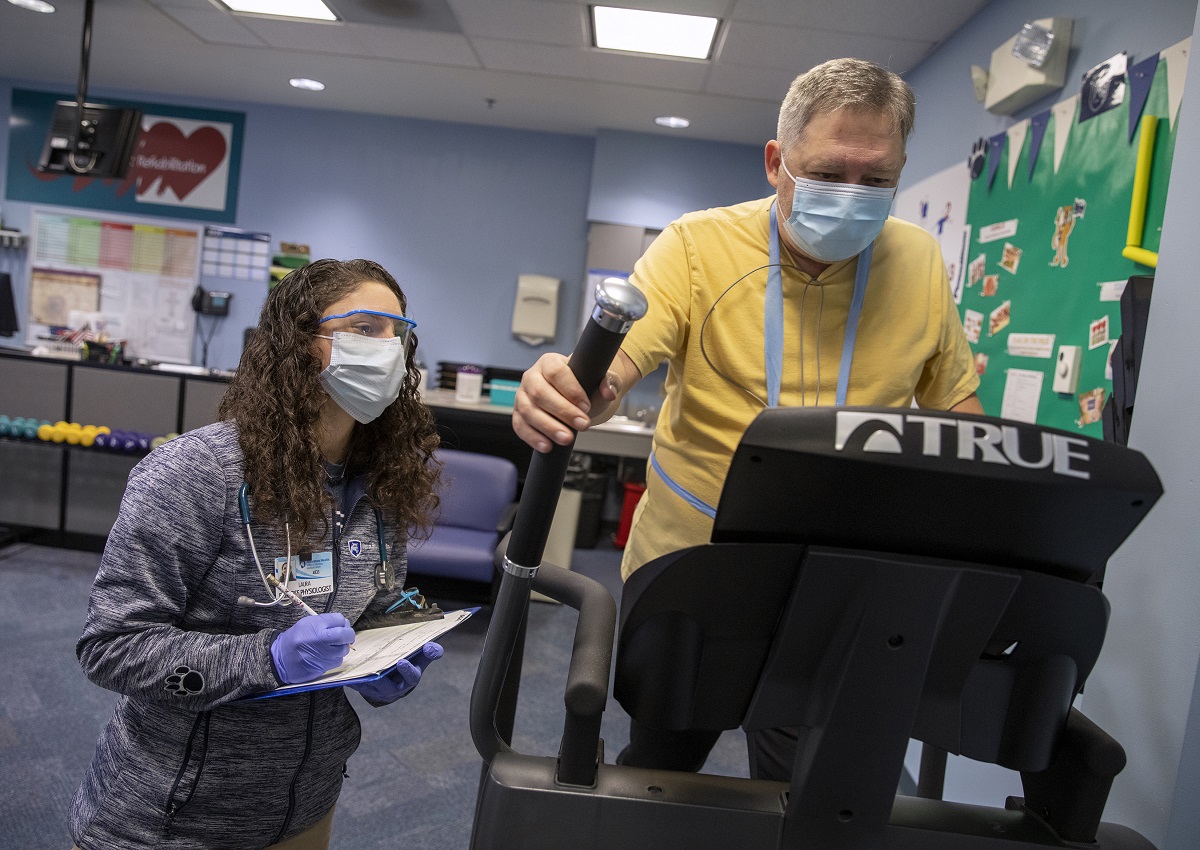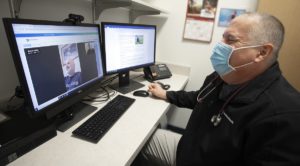Penn State Health offers first hybrid cardiac rehab program in central PA

Penn State Health Milton S. Hershey Medical Center’s Cardiac Rehabilitation Program is rolling out a new option in response to requests from its patients and increasing demand for its services.
Called “hybrid cardiac rehabilitation,” the novel approach combines in-person visits with virtual visits through the Penn State Health OnDemand app. The hybrid option allows participants to complete a full 36-session cardiac rehabilitation program while reducing travel time and enhancing their safety. It’s the first hybrid cardiac rehabilitation program in central Pennsylvania.
“Nationwide, only about 30 to 40% of patients who qualify for cardiac rehabilitation actually enroll in a program,” said Andrew Sorey, nurse manager of cardiac rehabilitation and wellness programs at the Milton S. Hershey Medical Center. “Having a hybrid option will make it easier for people to enroll in our program and experience its benefits.”
Cardiac rehabilitation gives patients who experience a heart attack, heart failure or other cardiac procedure an individually designed program of exercise, lifestyle changes and education.

Exercise physiologist Mike Zehner laughs at a joke told by Brian Welsh during Welsh’s virtual visit as part of Penn State Health Milton S. Hershey Medical Center’s Cardiac Rehab Program.
In the hybrid model, patients make one in-person visit to Hershey Medical Center during each week of the program. They then conduct a second visit virtually. In between, they can complete their exercises at the University Fitness Center on the Hershey campus, at a gym of their choice or at their homes. Patients receive all cardiac rehabilitation services—including individualized teaching—during in-person and virtual visits.
“We’ll tailor each patient’s exercise to the equipment they have at their nearby gym or at home” Sorey said.
Patients newly referred to cardiac rehabilitation may opt into the hybrid program. So, too, can patients nearing the end of their cardiac rehabilitation journeys. “We’ll meet with patients during their 30th session and begin to transition them from cardiac rehabilitation to an at-home program if they request it,” said Mike Zehner, an exercise physiologist with the cardiac rehab program.
In most cases, patients choose whether to enroll in an in-person or hybrid cardiac rehab program. However, patients with high-risk cardiac conditions, such as advanced heart failure or uncontrolled arrhythmia, are recommended to stay in the traditional program, which includes hour-long visits at Hershey Medical Center three to five times per week.
For in-person visits, the cardiac rehabilitation team follows numerous COVID-19 safety protocols, including temperature and symptom screenings for people entering the center, proper social distancing between exercise equipment and enhanced cleaning procedures. Patients must wear masks during their in-person visits.
According to the American Heart Association, cardiac rehabilitation programs reduce the risk of mortality by 45 to 47% and reduce hospital readmission by 31%. Hershey Medical Center’s Cardiac Rehabilitation Program carries certification from the American Association of Cardiovascular and Pulmonary Rehabilitation (AACVPR), and the hybrid cardiac rehabilitation program meets the AACVPR’s quality and safety standards.
If you're having trouble accessing this content, or would like it in another format, please email Penn State Health Marketing & Communications.
